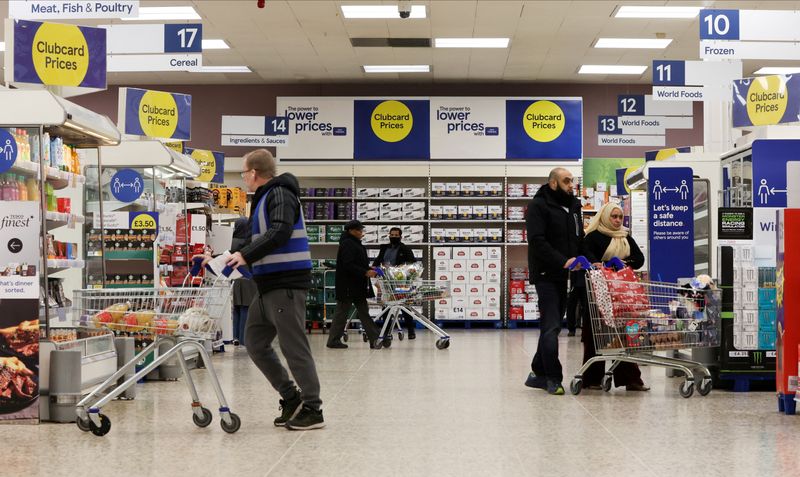By David Milliken
LONDON (Reuters) -The British public's expectations for inflation over the coming year rose to a record high last month, although longer-term expectations eased from previous multi-year highs, a Bank of England survey showed on Thursday.
Public satisfaction with the central bank's control of inflation also fell to its lowest since the survey started in 1999, giving policymakers food for thought as they prepare to announce their next interest rate decision on Sept. 22.
The BoE survey took place from Aug. 5-8 - just after the BoE raised interest rates by half a percentage point for the first time since 1995, but before data showed consumer price inflation hit a 40-year high of 10.1% in July and steps by new Prime Minister Liz Truss to cap household energy bills.
Expectations for inflation "over the coming year" rose to a record 4.9% form 4.6% in the last survey in May, but those for "the twelve months after that" dropped to 3.2% from 3.4%, which had been the highest since 2013.
Expectations for inflation in five years' time fell to 3.1% from 3.5%, below the survey's long-run average.
The BoE focuses more on medium-term inflation expectations than those for the short term, which tend to be influenced more by recent moves in headline inflation, rather than longer-term views which the BoE thinks influence businesses' price-setting decisions and wages.
The fall in medium-term expectations in the BoE survey contrasts with the trend in a survey conducted by U.S. bank Citi on Aug. 24-25, which showed long-run expectations rose to a record 4.8% in August.

Economists polled by Reuters expect the BoE to raise interest rates by half a percentage point to 2.25% next week, while financial markets think a bigger increase to 2.5% is more likely.
Thursday's survey showed 33% of the public were unhappy with how the BoE was setting interest to control inflation, versus 25% who were satisfied, giving a net satisfaction of -7%, the lowest on record.